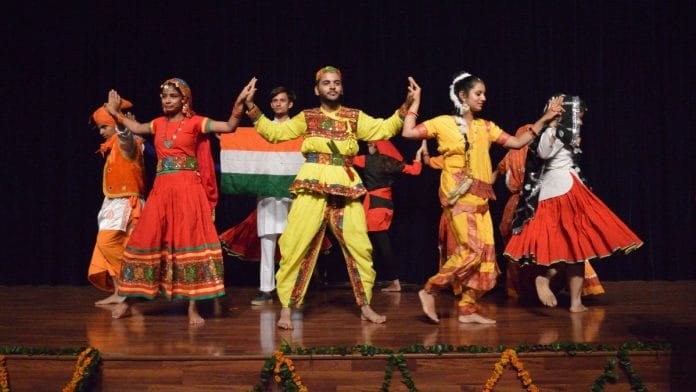Thank you dear subscribers, we are overwhelmed with your response.
Your Turn is a unique section from ThePrint featuring points of view from its subscribers. If you are a subscriber, have a point of view, please send it to us. If not, do subscribe here: https://theprint.in/subscribe/
India is an incredibly diverse nation with many regional variations, religions and languages. Some external observers of India expected the country would break up as a result. In fact, the Congress party, in the wake of India’s independence, managed these differences effectively, redrawing state boundaries along linguistic lines and forming a coalition of regional powerbrokers, rather than attempting to impose a centralized state run out of Delhi.
Perhaps the greatest challenge democracy faces in India is that it has failed to deliver the kind of sustained economic development enjoyed by neighbors like China over the last four decades. It has also failed to eliminate extreme poverty.
Indian Constitution and electoral politics
India’s Constitution was adjusted to describe it as a secular state during the 1975 emergency, and a later court ruling found that India has been secular since independence. But India is understood to be a deeply religious country, with diverse faiths represented in its population. The Constitution is secular in that it prohibits the persecution of individuals for their religious beliefs, but it does not specifically separate church and state in the fashion of the United States Constitution. Religion is an important factor in Indian politics with politicians courting votes by caste or religious affiliation.
For more than a century, a section of Hindu nationalists has called for the country to be redefined as a Hindu homeland.
The Preamble of the Indian Constitution in its present form begins:
“We, THE PEOPLE OF INDIA, having solemnly resolved to constitute India into a SOVEREIGN SOCIALIST SECULAR DEMOCRATIC REPUBLIC and to secure to all its citizens…………. “
The contradictions
Socialism: A political and economic theory of social organization which advocates that the means of production, distribution, and exchange should be owned or regulated by the community as a whole. In the real sense, India is not a socialist economy but a market economy and has to move towards further opening up of its markets if we have to create wealth and uplift the living conditions of our people. But some people and the courts ascribe vague definitions of socialism to justify the word in the preamble of the Constitution, though inserted only as an afterthought.
Secularism: India prohibits the persecution of individuals for their religious beliefs, but unfortunately it does not specifically separate church and state in the fashion of the United States Constitution, with religion and caste specific articles written into its Constitution. These have been perpetual contentious issues impeding progress. As a result, deplorably, religions and castes have become overriding factors in Indian politics with politicians courting votes by caste or religious affiliation at the expense of development works.
The media
In any democracy, especially in a very young, evolving, populous and diverse democracy like India, which was given Independence in the wake of politics based on religions, passionately differing views on matters is natural and welcome. Intend is the measure of morality and not the result: Democracy can be sabotaged by too much democracy with absence of morality, and get slaughtered at the altar of elections.
These days, we find most writings and commentaries are based on preconceived notions that a person or an organization is bad or good. Unfortunately, there are few media persons, these days, in the world whose commentaries on governments and politics are neutral and unbiased. In the digital media too, we find most of the offerings are in pursuit of an agenda. They can be best accepted as qualified differing views irrespective of the intent. But alas, we the people too read only what we want to read declare all else as fake. Very few of us venture to read, hear or see what we do not purportedly seem to support.
Another aspect of the media is overstatement and incomplete reporting. Take for instance, in the run up to the 2025-26 union budget, there were more AI experts on the Indian digital media than there were economic experts, thanks to the Chinese open source chatbot DeepSeek. They failed to explain that ChatGpt like applications are only one area of AI which the public is able to access freely and usefully employ for personal uses. ChatGPT and Deepseek etc. are just one area of AI, specifically within Natural Language Processing (NLP) and Conversational AI.
AI as a whole is a vast field that includes many other areas, like specific areas of Finance, Marketing, Agriculture, Robotics, Defense, Gaming, Space, Education, Image processing, manufacturing and more. Many of these aspects were missing from the partial reporting as being done in many current topics.
It is possible that too much democracy, electoral politics and unfettered freedom and too little economic freedom and ability to conduct business is setting back progress and development of India that is Bharath, earning it the moniker of a laggard democracy.
(The author is an Indian Army veteran and a contemporary affairs commentator.)
These pieces are being published as they have been received – they have not been edited/fact-checked by ThePrint.


